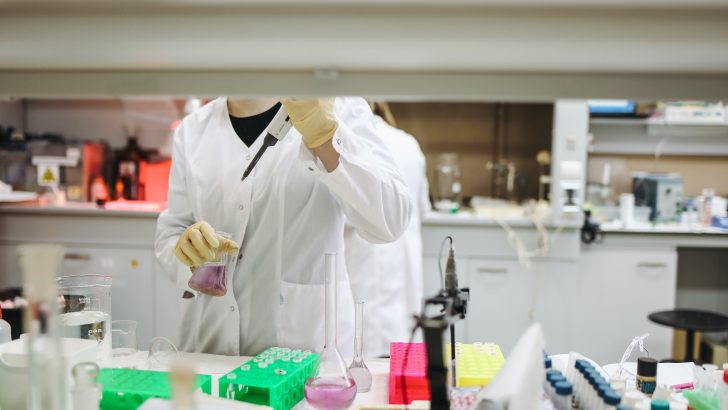Medical Matters
Our lives have changed in so many ways as a result of the pandemic, which has impacted negatively on health-related behaviours such as alcohol consumption, smoking, diet and physical activity. This will not come as any surprise given that surveys suggest that up to half of the population have experienced moderate levels of psychological stress.
While there was an initial reduction in overall alcohol sales earlier in the year, purchases of wine actually rose by 10%. Alcohol Action have reported an increase in alcohol purchases in May and June and more recently there has been a reported increase by over 50% following the implementation of level 3 restrictions. The charity ‘Drinkaware’ has also voiced concerns about a rise in alcohol consumption with the imposition of level 5 guidelines.
For example, in a study of nearly 1500 adults about 50% reported a reduction in physical activity and 40% less time spent sleeping”
Despite this, behavioural responses in the pandemic have been mixed with some people actually adapting and living a healthier lifestyle. In Ireland, studies suggest that up to 30% of people have increased their alcohol consumption but a similar proportion have also reduced their intake. Similar patterns have also been observed in other European countries, USA, Canada and Australia. Several studies point to higher rates of drinking during the pandemic in females, younger adults, those with more children at home, and where there is unemployment, higher levels of depression and stress.
It is also more likely in those with higher pre-existing alcohol intake, mental health problems and in both lower and higher income groups. Additionally, if working from home, avoiding the need to drive to work may be a factor as well as a tendency to take larger drink measures and consume more given the lower cost compared to buying drink when out.
Indeed, in Northern Ireland, an 8pm cut-off was introduced for off-licences and supermarkets selling alcohol and some are also calling for governments to increase public health warnings about excessive alcohol consumption.
But the pandemic has also had a big impact on other health behaviours. For example, in a study of nearly 1500 adults about 50% reported a reduction in physical activity and 40% less time spent sleeping. Alcohol may be taken to help with insomnia though can lead to interrupted and poor quality sleep. Snacking is also likely to increase with stress and coupled with lack of exercise results in weight gain. In a European study of nearly 3500 participants nearly half felt they had gained weight during the pandemic. Studies have also pointed to people increasing their calorie intake and having diets with lower nutritional quality. Some nutritionists have even predicted a rise in childhood obesity due to the pandemic.
The trial that began in July has seen 38,996 people vaccinated in a regimen that involves two injections 21 days apart”
We are also learning more about post Covid symptoms. A large U.S. study of more than 62,000 Covid cases recently published in the Lancet Psychiatry identified that nearly 20% of survivors had a new diagnosis of anxiety, depression or insomnia within three months of their infection.
Turning to a positive note, the recent preliminary results of the phase three vaccine trials by Pzifer/BioNTech were groundbreaking for two reasons. Firstly, in the apparent 90% reduction in new Covid-19 cases and also in the application of a new technology never used before. The vaccine is novel in that unlike others, it does not involve the use of a weakened or modified virus but instead viral genetic material.
In short, the vaccine comprises of a genetic component (mRNA) of the coronavirus that encodes its characteristic spike protein that it needs to enter human cells. When injected, our bodies muscle cells use the genetic code to manufacture the ‘spike protein’ which then induces our immune system to mount an attack and produce antibodies.
The trial that began in July has seen 38,996 people vaccinated in a regimen that involves two injections 21 days apart. At 28 days it was found to be over 90% effective at reducing Covid-19 with no more than eight cases in those who were vaccinated versus 86 in those who got placebo. Completion of the trial is expected in December when the target number of 146 Covid-19 infections is reached ensuring more robust analysis. The trial also involved about 30% of US adults from black and racially diverse backgrounds.
It remains unclear though whether it prevents people catching the virus or passing it on as opposed to simply not getting symptoms and also how the long the immunity will last. Importantly, no serious adverse effects were reported. Vaccination though requires two injections and it must be stored at -80°C posing logistical challenges. However, just last week Moderna’s vaccine, using similar technology and requiring two injections 28 days apart, was reported to be 94.5% effective though can be stored for up to one month at standard fridge temperatures. Additionally, the preliminary outcome of two other major vaccine trials, albeit different and using a modified virus design are also in the pipeline. There is now truly good reason to be hopeful that by early next year widespread vaccination will begin and finally spell an end to the travails of this pandemic!


 Dr Kevin McCarroll
Dr Kevin McCarroll
